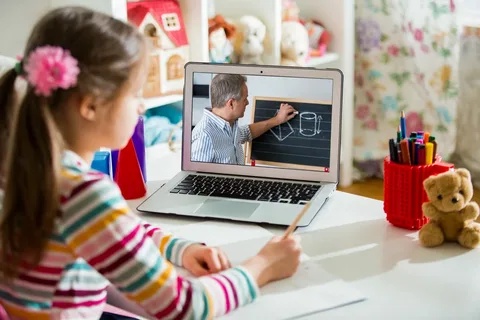Introduction:
In recent times, the education landscape has experienced a dramatic shift due to the global pandemic. Traditional classroom setups have been replaced by hybrid remote learning models, where students divide their time between in-person and online classes. This transition has posed numerous challenges, but it has also opened doors to new possibilities and opportunities for students. In this blog, we will explore how hybrid remote learning empowers students for success in a hybrid world and highlights the key benefits it offers.
Flexibility in Learning
In a hybrid remote learning environment, students enjoy the flexibility to learn at their own pace and in their preferred setting. They can access course materials, lectures, and assignments online, allowing them to tailor their learning experience to their individual needs. Whether a student is a visual learner, requires additional time for comprehension, or thrives in a quieter environment, hybrid remote learning provides the flexibility to accommodate diverse learning styles.
Enhanced Accessibility
Hybrid remote learning breaks down barriers to education by increasing accessibility for students who face geographical, physical, or logistical challenges. Students residing in remote areas, those with disabilities, or those juggling work and family commitments can access quality education without being restricted by traditional classroom boundaries. This newfound accessibility empowers students who may have otherwise been marginalized, enabling them to pursue their academic goals and contribute to a more inclusive society.
Collaboration and Global Connections
Hybrid remote learning encourages collaboration among students from different backgrounds and regions. Through online platforms, students can engage in discussions, group projects, and peer-to-peer learning, fostering a sense of global connectivity. By interacting with diverse perspectives, students develop essential skills such as cross-cultural communication, empathy, and teamwork. These experiences prepare them for a globalized world where collaboration and cultural competence are increasingly valued.
Personalized Learning Experience
Hybrid remote learning offers personalized learning experiences tailored to each student's strengths, weaknesses, and interests. With the aid of data analytics and adaptive learning technologies, educators can identify individual learning gaps and provide targeted interventions. Students can also explore supplementary resources and engage in self-paced learning modules that align with their unique goals. The ability to personalize the learning journey enhances student engagement and promotes a deeper understanding of the subject matter.
Digital Literacy and Technological Proficiency
In a hybrid remote learning environment, students acquire essential digital literacy and technological proficiency skills. They become adept at utilizing online platforms, multimedia tools, and communication software. These skills are highly valuable in the modern workforce, where remote work and digital collaboration have become increasingly prevalent. By engaging with technology in an educational context, students are better prepared to navigate the digital landscape and adapt to emerging technologies.
Self-discipline and Time Management
Hybrid remote learning requires students to develop self-discipline and time management skills. With the freedom to manage their own schedules, students learn to set goals, prioritize tasks, and allocate time effectively. These skills not only benefit their academic pursuits but also prepare them for the demands of higher education and professional careers. Self-discipline and time management empower students to take ownership of their learning, promoting independence and self-motivation.
Conclusion:
Hybrid remote learning has emerged as a powerful educational paradigm that empowers students to thrive in a hybrid world. Its flexibility, enhanced accessibility, collaboration opportunities, personalized learning experiences, technological proficiency, and development of essential skills all contribute to student success. As we navigate the evolving educational landscape, it is crucial to embrace the advantages of hybrid remote learning while addressing its challenges. By leveraging technology and innovative teaching methods, we can ensure that students receive a comprehensive and empowering education, enabling them to succeed in the hybrid world of tomorrow.


No comments yet